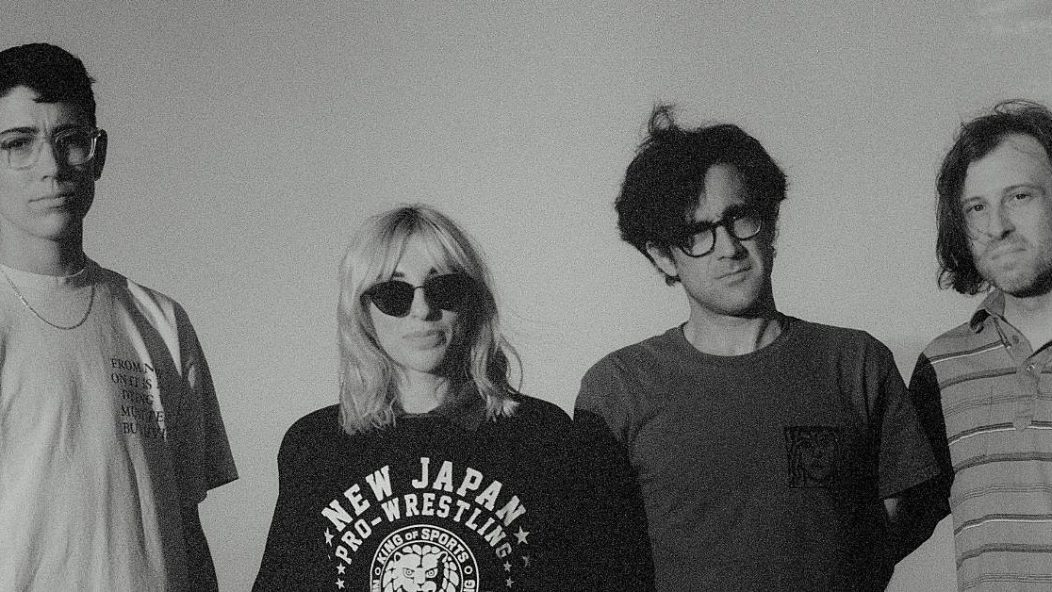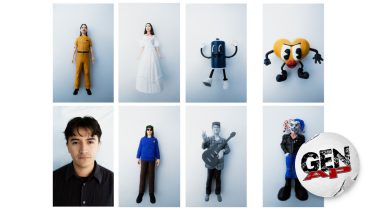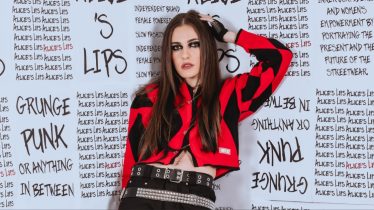
Jobber pay tribute to pro wrestling with their empowering debut EP Hell in a Cell
Back in the mid-’90s, if you turned on the TV and saw Barry Horowitz patting himself on the back in a wrestling ring, you knew something bad was about to happen. Heavily bearded and magnificently mulleted, once the bell rang, he’d get twisted up like a pretzel in Bret Hart’s Sharpshooter, or press-slammed by the Ultimate Warrior, or maybe have his head kicked by Shawn Michaels. Horowitz is chiefly famous as a jobber — a grappler whose purpose is to lose violently while making the stars of the show look like a million bucks.
Kate Meizner, a Brooklyn-based artist who’s toured as a guitarist with Snail Mail and played in bands such as the Glow, Maneka and Hellrazor, is fascinated by people with Horowitz’s particular skill set, including more modern incarnations such as Bo Dallas and Tyler Breeze. There’s no slight intended in the fact that she’s called her new band Jobber. Instead, her gritty indie-punk songs find parallels between her life as a musician and gig worker and the existence of those on the lower rungs of the sports entertainment ladder. “We’re pretty much just enhancement talent for whoever the headliner is,” she says.
Read more: The 15 best final girls of all time, ranked
As Meizner observes, jobbers cram into vans and drive thousands of miles to entertain small crowds for a few dollars and the chance to feel connected to their art, and so do punk bands. No one’s back is thanking them for their career choices. “All I wanted was for these wrestlers, who were clearly very talented, to get a chance at the championship, and they never did,” she says. “It’s almost like Jobber is an incarnation of what would happen if jobbers actually got a chance to shine. I was like, ‘I’m going to write these jobbers some great entrance music and try to highlight their plight.’”
The result is Jobber’s debut EP, Hell in a Cell, out now via Exploding in Sound. With the release, particularly on the title track, and the fizzing highlight “Entrance Theme,” Meizner and her bandmates — former Ovlov and Speedy Ortiz drummer Mike Falcone, guitarist Michael Julius and bassist Maggie Toth — work sugary melodies into a roiling core of Dinosaur Jr.-style fuzz while her lyrics flesh out the double meaning of the record’s name. As well as being a type of gimmick match in wrestling — essentially, things get really gnarly inside a cage — it’s a nod to the dehumanizing nature of casual work.
Jobbers job because they love the craft and understand its mechanics. An Uber driver on the streets of San Francisco might fold themselves behind the wheel soon after finishing a shift as a school teacher, pulling those ends closer to meeting. People like Meizner, meanwhile, work in cubicles day after day so that they can keep the lights on while playing music at night. “There’s a toll that takes on your mental and physical health,” she says.
“Jobbers are going from city to city, putting their body on the line for this thing,” Meizner adds. “I was thinking about the toll gig work ultimately takes on you. And what is the root of that toll? The fact [is] that gig workers do not have health insurance a lot of the time. That’s been a huge talking point in wrestling for some time as well.”
When it’s put to her that forming a concept-based band carries with it a risk of running out of track, Meizner takes the opposite view. The project began as a way to blow off creative steam that had built up while she was out on the road, and her engine is still running at a clip. Her anxiety isn’t that she’ll stall creatively — there are countless Jobber songs, potential song titles and music video ideas that are yet to be shared — it’s that her circumstances might change. Just like so many people in precarious employment, she’s at the mercy of a finishing move out of nowhere.
“This has been brewing for long enough that I feel like my list of ideas is almost endless,” she says. “I’m more worried that I’m not going to be able to implement all of them. I always have this fear with music that something is going to happen in my life. It’s an unfortunate thing that musicians have to worry about: What if my job demands more of my time, or something happens with my family, or something happens to my health?”
Somewhere in a grimy locker room, a wrestler is taping their wrists and having similar thoughts. Much like Meizner, they aren’t ready to let go. “They love wrestling so much that they’re willing to just be utterly squashed,” she says, with obvious admiration.










